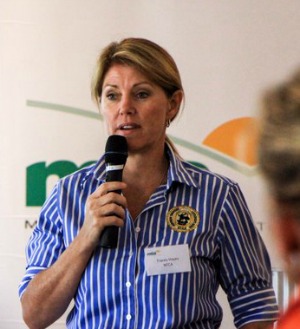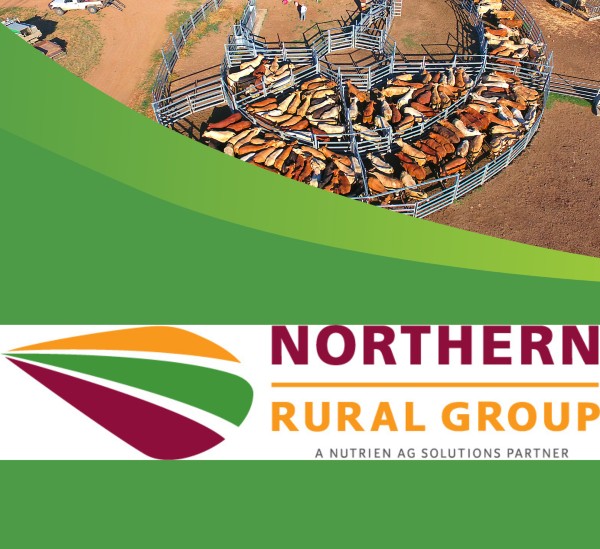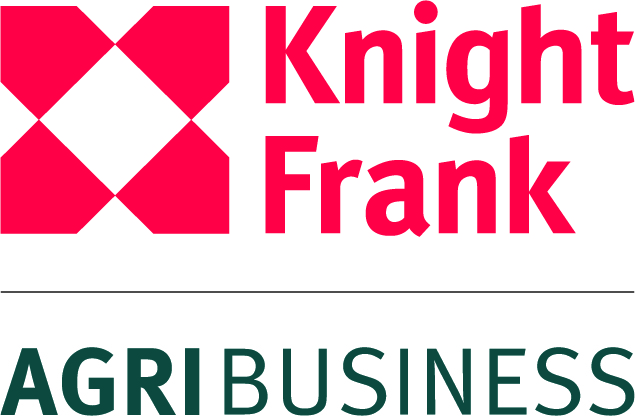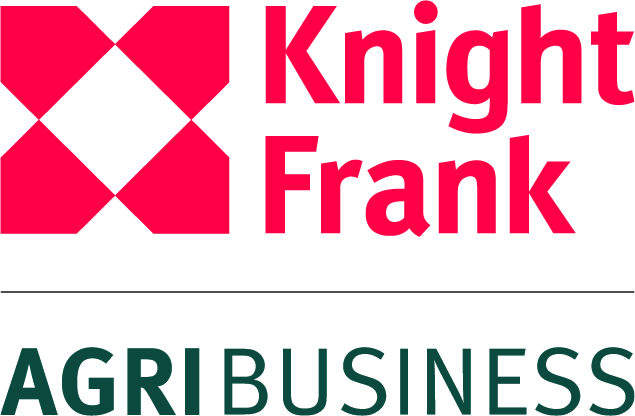NTCA Say No To Hydraulic Fracturing In NT
Tracey Hayes CEO Delivered a Submission at the inquiry

Tracey Hayes Chief Executive Officer Northern Territory Cattlemen’s Association
The Northern Territory Cattlemen's Association (NTCA) presented its submission to the Northern Territory Scientific Inquiry into Hydraulic Fracturing on Friday 10 March.
The NTCA does not support hydraulic fracturing within the NT's current regulatory framework as the associated risks have not yet been sufficiently quantified, understood and explained.
Our members, representing over 90% of the NT cattle herd, hold a diverse range of views in relation to hydraulic fracturing, ranging from those who support the increased development it will bring to a majority of Australians, to those who feel the risks to our environment and enterprises far outweigh the potential benefits.
The NTCA has sought, on behalf of its members, the ultimate right to protect their livelihoods, land, water and natural resources, including the right to say no.
However, we also support the right of our members to decide to have unconventional shale gas developers access their land if they can come to an appropriate agreement.
Should a Landholder agree to access, the Government must establish a legislative framework for Access, Conduct and Compensation Agreements between Landholders and Proponents.
The NTCA will provide a comprehensive written submission as the inquiry progresses and it reserves its position until the recommendations of the inquiry are known.
(Legal Lawyer Barry Taylor supports the submission put forward by NTCA)
Opening statement
The Northern Territory Cattlemen’s Association (NTCA) thank the Chair and the panel members for the opportunity to contribute to the scientific inquiry into hydraulic fracturing issues paper.
The NTCA represents Northern Territory cattle producers, land managers and businesses in a national and international food supply chain. The Northern Territory cattle production sector is a renewable industry utilising land, water, air and sunlight to produce food for consumers in Australia and overseas.
Our members, representing over 90% of the NT Cattle Herd, hold a diverse range of views in relation to hydraulic fracturing from those who support the increased development it will bring to a majority of Australian’s, to those who feel the risks to our environment and enterprises far outweigh the potential benefits.
The NTCA have considered a range of views in developing the following position, which we feel best represents the needs of our members.
It is important to note that the NTCA speaks for the cattlemen, not for the protagonists or antagonists of the oil & gas industry. Our mission is to protect and enhance the interests of our members. Sustainability is more than a buzz-word to the people of our industry. It is bedrock of our existence and continuing contribution to the NT community and economy.
The NTCA does not support the use of hydraulic fracturing in the Northern Territory, as the many associated risks to be considered & managed are not yet sufficiently quantified, understood and explained.
Further it is our position that hydraulic fracturing is not sufficiently covered by a legislated regulatory framework to ensure the ongoing sustainability of the pastoral industry and rural communities, availing coexistence.
We acknowledge the considerable gas reserves located within the Northern Territory provide significant economic enticement to Governments present and future. The NTCA also recognises that fossil fuel reserves are finite, while livestock production and agriculture generally will operate in perpetuity.
Food, water, energy, protection are essential to human existence and we would argue that this is a priority order.
We do not believe that the pursuit of benefits to be gained from extracting finite resources such as gas for energy, should negatively impact on the long-term benefit gained from our industry.
Therefore, regardless of the outcome of the inquiry, there are a number of issues of primary concern for the NTCA and our members which are not negotiable and need to be addressed.
These include the integrity and security of;
• Our water quality and quantity
• Our land, water and terrestrial ecosystems
• Market and consumer confidence in the safety and value of our product
• Our livelihoods and businesses
• Industry systems and accreditations
• The health and wellbeing of our community
Any risks related to the above must be acknowledged, and systems be put in place to mitigate them to demonstrate a commitment to limiting any potential negative impact as the result of a gas industry.
The NTCA notes a high level of uncertainty in relation to a number of these risks. A number of scientific literature reviews in recent years have highlighted gaps in existing knowledge in relation to environmental and public health, and studies released by various groups are often met with controversy, especially in relation to their impartiality.
The findings of two recent academic literature reviews into unconventional gas extraction demonstrate the uncertainty of these risks. A 2015 review supported by the University of Queensland's Centre for Coal Seam Gas (CCSG) found that:
“While the current evidence in the scientific research reporting leaves questions unanswered about the actual environmental health impacts, public health concerns remain intense. This is a clear gap in the scientific knowledge that requires urgent attention.”
Additionally, a 2016 review found that:
“...although numerous hazards and risks have been identified in studies to date, many data gaps remain. Notably, while there is now a far more substantive body of science than there was several years ago, there is still only a limited amount of epidemiology that explores associations between risk factors and health outcomes in human populations”
In consideration of this lack of certainty, the NTCA expects a high degree of accountability to offset the risks, such as through a Royalties for Regions-type program and/or a model of transparent bonds held in perpetuity.
7.1 Water
The integrity of water, both surface and underground, for livestock, biodiversity, food and fibre production, and domestic purposes is not negotiable.
Control Measures
A recent survey of NTCA members identified water quality and quantity as the area of most concern. While we await the outcomes of the inquiry by the scientific panel, we believe that the following should implemented to reduce the residual risk of hydraulic fracturing activities having an adverse impact on water resources;
• Comprehensively map, measure and report baseline data relating to water and connected systems based on a shared framework, criteria, and process to be agreed with a range of stakeholders;
• Identify and exclude from exploration and exploitation, areas where the risk to water is deemed to be unacceptable;
• Make it a requirement that water used for gas exploration and production be obtained from a different source to that of agriculture and domestic use;
• Access to water for the resources sector, including unconventional shale gas, to be regulated under the Water Act , removing the overarching right of proponents to access water;
• A better quantification and understanding of the cumulative effects of developing a gas field in terms of water use in total and on an annual basis.
• Implementing obligatory Make Good Agreements between Landholders and Proponents, to document:
o Proponents undertaking not to cause damage to the lands water resources;
o Proponents responsibility for any damage caused to the Landholders water resources; and
o compensation payable by the Proponent to the Landholder
The NTCA accepts the risks identified under 7.2 in the issues paper.
7.2 Land
The Pastoral Sector reserves the right to protect its terrestrial ecosystems and biodiversity. Soil and ecosystems are vital to a sustainable future.
Control Measures
To minimise risk to land as a result of hydraulic fracturing practices, the NTCA believes the following control measures should be implemented;
- Pre-construction baseline measurements and Environmental Impact Assessments to include soil profile data, particularly with respect to surface soil (to protect against contamination and unforeseen impacts to soil biodiversity or health); and
- Regulatory Land Access and Compensation Agreements.
The NTCA accepts the risks identified under 7.2 in the issues paper.
7.3 Air
Air quality is an integral component of a strong, healthy environment and production systems.
Control Measure
To prevent detrimental impacts as a result of unforeseen release of emissions from well sites, the following control measure should be implemented;
- Well heads to include air quality monitoring devices that are maintained by an independent third party. Air quality monitoring to extend beyond dust particulate monitoring and include all emissions identified as a potential risk of release due to the fracturing process.
The NTCA accepts the risks identified under 7.3 in the issues paper.
7.4 Public health
Human physical and mental health should not be compromised under any circumstances and is of the utmost concern to the NTCA including the potential for meat residues.
The impact of an unconventional gas industry within the NT has the potential to place considerable mental strain on pastoralists directly involved in the activities as well as those on neighbouring properties or in proposed development areas. There is also a risk to physical health due to contamination from the gas industry activities impacting on the living or working environments of pastoralists, or increased risk of injury due to risks associated with the construction activities and activities conducted for the ongoing maintenance of assets during the operational phase.
The NTCA accepts the risks identified under 7.4 in the issues paper.
7.5 Aboriginal People and their culture
The NT pastoral sector has a long association and mutual respect with Aboriginal people.
There is a responsibility to ensure Aboriginal communities are provided credible and accurate advice.
The NTCA is of the view Aboriginal interests are well represented in this process through the Central and Northern Land Councils.
7.6 Social Impacts
It is critical for the future of the Northern Territory that the social fabric of communities is maintained and enhanced and the NTCA is concerned that there is a real risk of an unconventional gas industry, and the boom and bust phases associated with establishing the industry, may have a detrimental impact on the long term viability of communities.
The NTCA agree that an exhaustive assessment of the social impacts is too early to determine, however the highest priority must be to ensure that benefits for communities remain post development.
Control Measures
The NTCA maintains the following measures should be implemented to ensure the social fabric of communities is either enhanced or maintained as a result of introducing an unconventional gas industry into the NT;
- Establish a policy similar to the Western Australia Royalties for Regions program, to ensure economic benefits generated as a result of the unconventional gas industry are invested into the communities affected by the shale gas projects. Benefits should be in the form of investment in infrastructure and long term capital assets.
- Compensation to be negotiated on a case by case basis with individual landholders.
-
The NTCA accepts the risks identified under 7.6 in the issues paper.
7.7 Economic impacts and 7.8 Land Access
The NT pastoral industry reserves the right to exist without detriment from another industry and maintains that those that hold a proprietary interest in the land reserve the right to negotiate access, including the right to say no and or yes.
Access to pastoral land, and the conditions upon which the land is accessed, has been identified as key to managing a number of the other risks identified by the panel. For example, mental health is linked to the ability of a pastoralist to negotiate control points that will provide confidence that project risks are adequately managed. Therefore, the conditions under which land is accessed is considered a critical point for pastoralists.
Control Measure
Due to the varying degrees of risk associated with each project and complex issues that will be unique from site to site and project to project, the NTCA considers individual rights critical to upholding the welfare of pastoralists and individual businesses, and as such maintains that a gas industry model in the Northern Territory must include the right to negotiate compensation for individual landholders including the individual right of pastoralists to say NO and or Yes to access.
This right must be legislated.
As Perpetual Leaseholders, NTCA members have the right of Exclusive Possession of their Land.
Each Landholder has the right to generally use the Lease (in accordance with the Lease conditions) without limitation.
The NTCA accepts the risks identified under 7.7 and 7.8 in the issues paper.
7.9 Regulatory Framework
The current regulatory land access framework is inadequate and does not meet the expectations of landholders and or delivers any compensation.
The Government, must establish a legislative framework for land access, conduct and compensation agreements between Landholders and Proponents.
The Land Access framework must acknowledge that the Proponent has a general liability to compensate Landholders for any compensatable effects suffered by the Landholder, and a Land Access, Conduct and Compensation Agreement must be agreed before access is undertaken.
Land Access, Conduct and Compensation Agreements can only be negotiated through full disclosure by proponents, that avails to the Landholder:
• What;
• Where; and
• When;
of the activities to be undertaken on the Land.
Government must legislate that a proponent who enters land in a petroleum authority's area to carry out an activity without agreement must be liable to a penalty.
The NTCA requests that the inquiry investigates a regulatory model that includes a layer of independent regulatory protection, particularly in relation to gas well integrity during construction, exploration and production and once decommissioned.
The NTCA requests the inquiry investigates a model of transparent bonds held in perpetuity and managed by an independent authority.
The NTCA requests that the inquiry investigates the merits of a gas reservation policy on behalf of all Territorians to ensure residents have access to clean and affordable gas for the foreseeable future.
The NTCA accepts the risks identified under 7.9 in the issues paper.
Closing statement
The NTCA is seeking, on behalf of its members, the ultimate right to protect the land, water, natural resources and their livelihoods.
In summation, it is the NTCA’s overarching position that:
• We do not support Hydraulic Fracturing in its current regulatory position, as the associated risks have not yet been sufficiently quantified, understood or explained;
• We support a Landholder’s right to say NO to access;
• Conversely this includes the Landholders right to say YES;
• Should a Landholder say YES to access, the Government must establish a legislative framework for mandatory Land Access, Conduct and Compensation Agreements between Landholders and Proponents?
The NTCA will provide a comprehensive written submission as the inquiry process evolves and progresses. The NTCA is available to provide assistance to the inquiry as required.
The NTCA reserves its final position on the identified and future risks until the results and recommendations of the inquiry are known.
CLICK ON IMAGE
Posted in Jim Pola Blog on Sunday, 12 March 2017
Location
Townsville QLD 4812



















